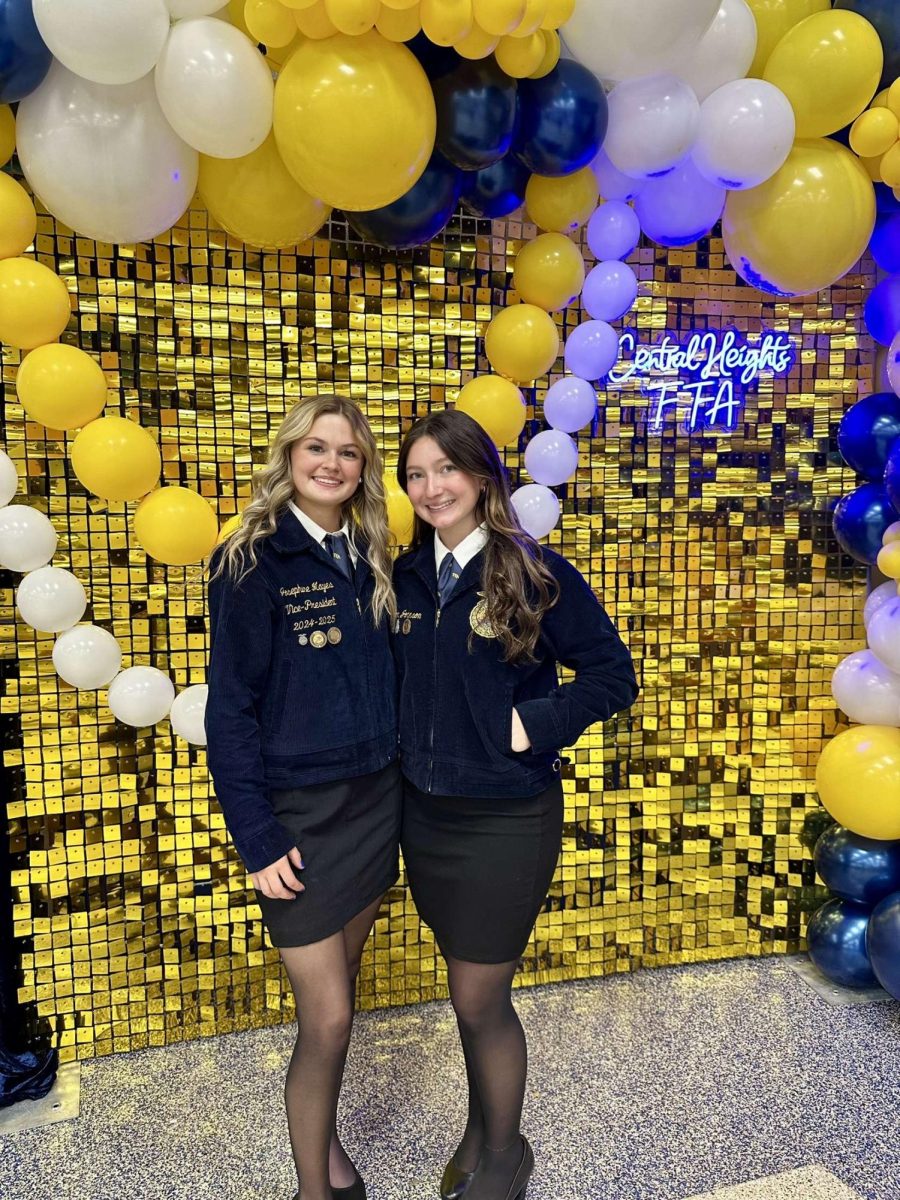In an exciting turn of events for this year’s FFA elections, this year’s District Vice President and Area Vice President positions were filled after a competitive election season filled with campaigning, speeches, and community engagement.
“I ran for district vice president as a step toward eventually becoming an area officer,” sophomore Allison Johnson said. “The campaign involved connecting with people at events, submitting an application, and giving a two-minute speech.”
The newly elected area vice president shared what motivated her to take the leap.
“I was inspired by the impact I saw I could make as a district officer,” junior Josephine Mayes said. “The support I received from the FFA community motivated me to keep going.”
Now in office, they have clear and focused goals.
“One of my goals is to help more teams from the Piney Woods District qualify for state
competitions, especially since none advanced last year,” Johnson said. “I want to make our district more competitive.”
Preparation for such a competitive role was no easy task.
“I studied with flashcards, practiced writing, and worked on my interview skills,” Mayes explained. “Most of the prep involved learning parliamentary procedure and farm facts.”
Their passion for FFA extends beyond competition.
“I plan to support local FFA chapters by actively engaging with members at events and encouraging involvement,” Johnson said. “Being present and connected is key.”
As an area officer, her main goal is to stay connected with FFA members across districts.
“We visit schools, attend meetings and banquets, and host leadership events like ALC,” Mayes said. “I enjoy talking to others and plan to stay active in connecting with members.”
Reflecting on the journey, Johnson had many rewarding experiences that encouraged her to run for the position.
“My most rewarding FFA experience was being elected district vice president,” Johnson said. “It showed my hard work paid off and reminded me how supportive the FFA community is.”
With leadership comes responsibility and challenges.
“Working with different personalities may be tough,” Mayes admitted. “But we’ll stay focused on teamwork and remember we’re all here for the same purpose.”
For these students FFA is more than an organization, it’s a foundation for growth.
“Agricultural education has pushed me out of my comfort zone and taught me to stay calm and think on my feet,” Johnson said. “It’s also helped prepare me for real-world leadership and job skills.”
Mayes’ advice for future FFA leaders is simple but can be helpful to younger people who would like to run for big leadership roles.
“If you’re unsure, run anyway because you’ll regret it if you don’t try,” Mayes said. “You might be surprised by the support you receive and how far you can go.”
